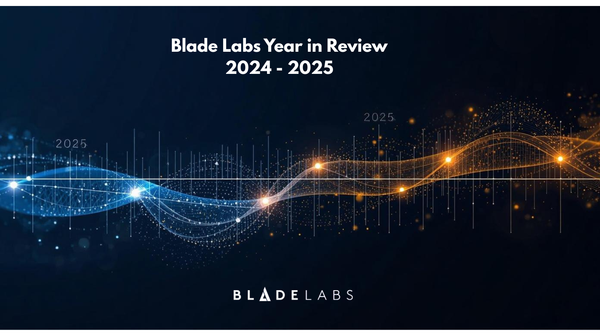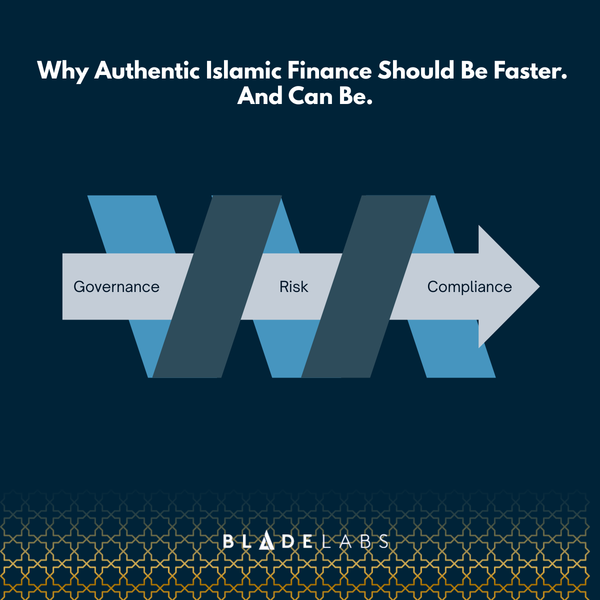The Smart Contract Paradox: Why Islamic Finance Needs Programmable Trust Without Code Worship
Picture this: you're a Shariah advisor reviewing a complex Murabaha transaction that involves automatic profit distribution, compliance monitoring, and real-time asset verification across three jurisdictions. The traditional approach would require armies of lawyers, auditors, and administrators—each adding costs and potential failure points. But what if the transaction could execute itself while maintaining full Shariah compliance? Welcome to the world where Islamic finance meets smart contracts, where the challenge isn't whether we can automate, but whether we should.
The Promise and Peril of Programmable Finance
Smart contracts represent one of the most compelling yet controversial applications of blockchain technology. At their core, they're simply programs that execute automatically when predetermined conditions are met. For Islamic finance, this automation offers tantalizing possibilities: imagine Sukuk that automatically distribute profits based on actual asset performance, or Musharakah partnerships where profit sharing happens in real-time without human intervention.
But here's where it gets interesting—and complicated. Islamic finance isn't just about mechanical compliance with rules; it's about preserving the ethical intentions behind those rules. When we encode a Murabaha contract into smart contract logic, are we preserving the spirit of transparent, asset-backed commerce, or are we creating a digital simulacrum that looks Islamic but lacks its soul?
The Technical Architecture of Trust
Our approach at ZeroH recognizes this tension and addresses it through what we call "programmable trust with human oversight." Rather than replacing human judgment with code, we use smart contracts to automate the routine compliance monitoring while preserving human authority for the interpretive decisions that matter most.
Consider how this works in practice. When we design a smart contract for Islamic asset management, we don't encode Shariah compliance directly into the contract logic. Instead, we create programmable frameworks that automatically execute after human Shariah advisors have validated the underlying principles. The smart contract becomes a trusted execution environment for decisions that have already been blessed by qualified scholars.
Oracles as Shariah Validators
This approach requires sophisticated oracle systems—external data feeds that provide real-world information to blockchain applications. But in Islamic finance, oracles need to do more than just report prices or exchange rates. They need to validate Shariah compliance in real-time.
We've developed oracle networks that monitor everything from the Halal status of underlying assets to the compliance of profit-sharing ratios with contemporary Shariah guidance. When a smart contract needs to execute a profit distribution, it doesn't just check mathematical formulas—it queries our Shariah compliance oracles to ensure the distribution method aligns with current interpretations of Islamic law.
The beauty of this system lies in its combination of automation and adaptability. As Shariah interpretations evolve or new fatawa emerge, our oracle networks can be updated to reflect current scholarly consensus. The smart contracts continue executing automatically, but their decision-making framework stays aligned with living Islamic legal tradition.
Real-World Implementation: The Musharakah Model
Let's examine how this works in a concrete example. Traditional Musharakah partnerships—where multiple parties contribute capital and share profits according to their contribution—can be incredibly complex to administer fairly. Manual profit calculations, dispute resolution, and performance monitoring create friction that often makes these partnerships impractical for smaller investments.
Our smart contract implementation transforms this equation. When partners contribute to a Musharakah fund, their contributions are recorded on-chain as verifiable credentials linked to their DIDs. As the partnership generates returns, our automated system calculates profit shares in real-time based on actual performance data fed through our oracle network.
But here's the crucial part: the profit-sharing formula itself isn't hardcoded. Instead, the smart contract references Shariah compliance parameters that are maintained by qualified scholars and updated as needed. If scholarly consensus shifts regarding acceptable profit-sharing methodologies, the change can be implemented across all contracts simultaneously without requiring individual renegotiation.
The Governance Question
This brings us to one of the most interesting challenges in Islamic fintech: who controls the code? In traditional Islamic finance, Shariah boards provide oversight and interpretation. But smart contracts, once deployed, can be difficult or impossible to modify. How do we maintain scholarly authority over financial products that are designed to execute autonomously?
Our solution involves what we call "governed autonomy." Smart contracts are deployed with built-in governance mechanisms that allow designated Shariah authorities to pause, modify, or upgrade contract behavior when necessary. This isn't just about fixing bugs—it's about ensuring that automated systems remain accountable to Islamic legal authority.
We implement this through multi-signature controls where Shariah board members hold keys that can trigger governance actions. If a contract needs to be updated to reflect new scholarly guidance, the board can collectively authorize the change. The automation continues, but ultimate authority remains with qualified human interpreters of Islamic law.
Privacy and Transparency: The Islamic Balance
Islamic finance emphasizes both transparency in business dealings and privacy in personal affairs. Smart contracts, operating on public blockchains, create interesting tensions around this balance. How do we provide the transparency that builds trust while protecting the privacy that Islamic ethics demands?
Our implementation uses zero-knowledge proofs and selective disclosure mechanisms to thread this needle. Stakeholders can verify that transactions comply with Islamic principles without accessing private details about other parties' financial positions. A Sukuk investor can confirm that underlying assets are Halal and properly valued without learning confidential business information about the asset owners.
This technical approach preserves what Islamic finance scholar Dr. Mahmoud El-Gamal calls "information justice"—ensuring that all parties have access to information relevant to their decisions while protecting unnecessary exposure of private details.
The Human Element in Automated Systems
Perhaps the most important insight from our work is that successful Islamic fintech isn't about replacing human judgment with algorithmic precision. It's about augmenting human wisdom with technological capability. Smart contracts excel at consistent execution of agreed-upon rules, but they cannot replace the interpretive flexibility that Islamic legal tradition requires.
Our architecture recognizes this by building what we call "interpretive interfaces" into smart contract systems. When unusual situations arise—market disruptions, regulatory changes, or novel transaction structures—the smart contracts can flag these situations for human review rather than attempting to handle them algorithmically.
This approach aligns with classical Islamic legal methodology, where established principles provide guidance for routine situations, but qualified scholars must interpret how those principles apply to novel circumstances. Technology handles the routine; humans handle the exceptional.
Scaling Trust Through Code
The ultimate promise of smart contracts in Islamic finance isn't just efficiency—it's scalability of trust. Traditional Shariah compliance mechanisms work well for large institutions that can afford dedicated oversight, but they often exclude smaller players who need access to compliant financial products.
By encoding compliance monitoring into automated systems, we can extend Shariah-compliant finance to markets and communities that have been historically underserved. A small business in rural Malaysia can access Musharakah funding with the same compliance guarantees as a major corporation in Dubai, because the underlying trust infrastructure is programmable and scalable.
This democratization of access aligns perfectly with Islamic finance's original vision of inclusive, ethical commerce. We're not just building better technology; we're building technology that serves Islamic finance's fundamental commitment to justice and accessibility.
The future of Islamic finance lies not in choosing between human wisdom and technological capability, but in thoughtfully combining them. Smart contracts offer unprecedented opportunities to scale Shariah compliance while reducing costs and friction. But they succeed only when designed as tools that amplify rather than replace the human judgment that Islamic legal tradition requires.
As we continue developing these systems, our focus remains on serving the ethical intentions behind Islamic finance rather than merely automating its forms. Technology should make Islamic finance more accessible, more transparent, and more aligned with its fundamental values—not just more efficient. That's the real smart contract revolution in Islamic finance.


